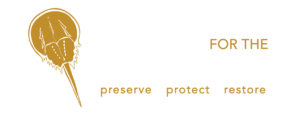Scientists Address Water Quality in the Inland Bays at Upcoming Science Meeting in Lewes
Three presentations related to water quality trends, nutrient monitoring, and water quality modeling in the Inland Bays and Sussex County will be given at the next meeting of the DE Center for the Inland Bays Science and Technical Advisory Committee on Friday, March 28 from 9 a.m.to noon at the Department of Natural Resources and Environmental Control (DNREC) Lewes Field Station (next to the DNREC Boat Ramp) at 901 Pilottown Road in Lewes. The public is invited to attend.
DNREC scientist, Hassan Mirsajadi, will present ‘Updates on Water Quality Condition of the Inland Bays’ focusing on trends in nutrient concentrations and loads, and offering an overview of several management actions and their effect on water quality.
Dr. Damian Brady of the University of Maine School Of Marine Sciences will speak about ‘Water Quality Modeling in Delaware’s Inland Bays: Where Have We Been and Where Should We Go?’ Dr. Brady will discuss the results of a CIB-funded project to assess the model and the data used to calculate the current TMDL (Total Maximum Daily Load ) levels for the Inland Bays. TMDL is a calculation of the maximum amount of a pollutant that a water body can receive and still safely meet water quality standards.
Dr. James Glancey of the University of Delaware will present his work on the ‘Evaluation and Enhancements of the Chesapeake Bay Watershed Model for Predicting the Impact of the Poultry Industry on Water Quality.’
The Science and Technical Advisory Committee is a standing committee of the CIB Board of Directors. The public is welcome to attend these meetings. Presentations from past STAC meetings can be viewed on the CIB website www.inlandbays.org.
The Delaware Center for the Inland Bays is a non-profit organization established in 1994 to promote the wise use and enhancement of the Inland Bays and its watershed. With its many partners, the CIB conducts public outreach and education, develops and implements restoration projects, encourages scientific inquiry, and sponsors research. For more information, or to learn how you can support this important work call visit our website at www.inlandbays.org
